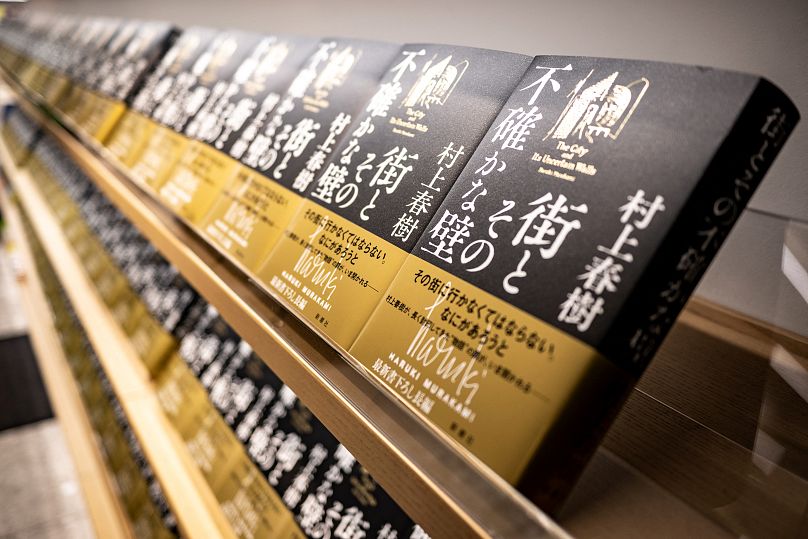Haruki Murakami's new book ‘The City and Its Uncertain Walls’ has been released in Japan. We look back at what makes the writer so unique.
Acclaimed Japanese author Haruki Murakami has a new book out. ‘The City and Its Uncertain Walls’ has been released in Japan, and as the rest of the world waits for the novel’s translations, Japanese reception has been overwhelming.
It’s Murakami’s first novel in six years since ‘Killing Commendatore’, and is also his longest, running to over a thousand pages - significantly more than his previous dystopia tome ‘IQ84’.
From a bookstore in Tokyo’s Shinjuku district, copies of ‘The City and Its Uncertain Walls’ were quickly snapped up.
“I want to read it as soon as I get home. Although I'd like to savour every sentence, I'll probably devour it in one sitting,” Shunsuke Mitsumoto, a 39-year-old fan who was among the first to snatch up a copy after sales opened at midnight, told AFP.
The 74-year-old author wrote this new novel in isolation during the pandemic. Murakami has made his name through his broad array of internationally successful books from his 1987 novel ‘Norwegian Wood’ and through works like ‘The Wind-Up Bird Chronicle’ and ‘Kafka on the Shore’, as well as essay collections like ‘What I Talk About When I Talk About Running’.
For the past decade, Murakami’s name has always featured as a favourite to win the Nobel Prize for Literature. Although literature’s highest honour alludes him, he’s received the Franz Kafka Prize, the Jerusalem Prize, among many other honours.
Murakami became a beloved cult author in Japan after the release of his breakthrough ‘Norwegian Wood’ and it wasn’t long before his work was discovered abroad. Embracing Western culture in his fiction, as well as his conversational writing style put him apart from many other Japanese authors of the time. It also meant his work lent better to translations. International audiences loved how approachable his stories are, even if they spurn typical narratives, bringing in surrealist imagery without fanfare.
Spanning genres, from magical realism to science-fiction and romance, Murakami’s work is hard to pin down. It’s been adapted numerous times into films, stage shows, and even featured in an album.
Drive My Car, adapted from a Murakami short story, won Best Screenplay at the 2021 Cannes Film Festival and the Best International Feature Award at the 2022 Academy Awards.
Why I love Murakami
My first experience of Murakami was in the place most people start with him, ‘Norwegian Wood’. In 2014, before I had a smartphone, ‘Norwegian Wood’ was the only entertainment I had on a 21-hour train ride from the countryside city of Guilin to Shanghai in China.
With only the shifting landscape from my window as distraction, I plunged into Murakami’s gentle world and finished the book in one sitting. It was immense. Despite the sparse writing style, he pulled me into a busy world of forlorn love-lost nostalgia.
The protagonist finds himself welling with emotion as his plane lands back in Tokyo and the Beatles song ‘Norwegian Wood’ transports him back to his teenage years. As the narrator reminisced at the end of a journey, the painful nostalgia permeated into me as I finished my journey. Although our destinations were different (Tokyo compared with Shanghai), the internal slow magical nature of Murakami’s fiction had leaked into my appreciation of my own megacity.
Murakami’s fiction is at its best when it’s focusing on the stolen glances that represent entire relationships, or the off-hand surrealism he interplays with mundanity, turning the extravagant into the believable. ‘Norwegian Wood’ is one of his least “magical” books, yet it still oozes with that most tricksy and mysterious of human elements: memory. It’s also romantic and very, very sad.
While it could be another year before ‘The City and Its Uncertain Walls’ gets an official English translation, the arrival of a new book by the Japanese author is always an occasion.













